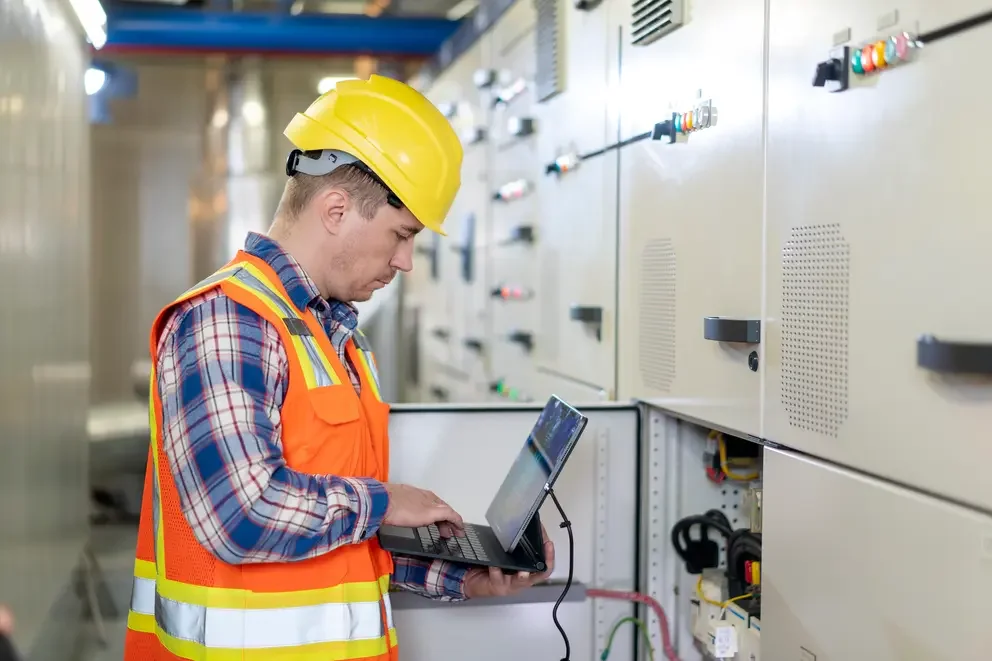“How to Start an Electrical Contracting Business” encompasses the strategic, operational, and regulatory preparation involved in establishing a company that delivers electrical services. These services could include installation, maintenance and repairs of electrical systems in residential, commercial or industrial settings, adapting to the evolving dynamics and technological advances in the field of electrical work.
Starting this type of business requires not only technical knowledge and competence but also an understanding of licensing, insurance, and business management. It’s important that potential business owners revise their certifications to abide by local, regional, and national electrical codes. The aim is not just to provide safe and effective solutions but to also lay a strong foundation for a scalable and sustainable business model.
As a venture that inherently presents various risks, it entails creating comprehensive business plans, assessing the competitive landscape, securing the necessary investment, and formalizing key operations such as marketing strategies, hiring skilled professionals, and adhering to best practices within industry guidelines – all towards building a reputable electrical contracting business.
Content:
- Igniting Sparks: Launching Your Own Electrical Contracting Firm
- Empowered Endeavors: A Guide to Starting Your Electrical Contracting Trade
- Starters’ Manual: Navigating the Electrical Contracting Business World
- Government Talents Handy: Establishing Your Own Electrical Contracting Company
- Sleeping Volts Awakens: Invoking Your Passion for the Electrical Contracting Business
Embarking on the journey to create an electrical contracting business implies both excitement and challenge. Before channeling one’s skills and passion into profitable entrepreneurship, prospective business founders must grasp the multi-faceted process that paves the road to a successful enterprise. Not merely a task of mastering the craft, starting this business demands precision in planning and execution.
Forthcoming electrical contractors dive deep into more than the intricacies of circuits and generators; an understanding of startup economics plays just as pivotal a role in their ventures. Conducting market research, evaluating customer needs, and carving out a niche are crucial steps before making a mark in the industry. Winning over the trust of a client base with savvy business acumen amplifies a firm’s special array of specialized electrical solutions.
Accordingly, building an electrical contracting business is tantamount to constructing a critical infrastructure where every step undertakes a heightened degree of awareness, forward thinking, and consistent quality control. Being a sage entrepreneur while maneuvering through the complex tapestry of the electrical field enables the forging of not only connections and fittings but visions and strategies for surging growth.
Igniting Sparks: Launching Your Own Electrical Contracting Firm
Starting an electrical contracting firm ignites a spark of entrepreneurship. This endeavor requires more than skillful handling of wires and circuits—it necessitates a keen business acumen. Your journey begins with devising a comprehensive business plan that illuminates the path forward. Researching market demands and potential competition is critical, as it shapes your services and specializations. Branding also plays a vital role, so select a name and logo that powerfully resonate with clients.
The financial aspect cannot be overlooked when launching a firm. Securing initial funding may come from various sources, such as personal savings, loans, or investor capital. Establishing a detailed budget that includes expenses for equipment, employee wages, and insurance is paramount. Moreover, pricing strategies must reflect both competitive rates and the value of your expertise. Remember to track finances meticulously, utilizing software if necessary, to maintain a current snapshot of your business’s health.
Legalities are the backbone of a credible contracting business. With laws and regulations frequently evolving, staying updated is essential. Required permits and licenses must be obtained, and adherence to safety standards cannot be compromised. Joining professional networks can be immensely beneficial, providing guidance and resources. Insurance, too, is non-negotiable, safeguarding against unforeseen events that could otherwise disrupt business operations.
The human element is the lifeblood of your firm. Recruiting a team of skilled electricians and support staff is just the first step; continuous training ensures everyone’s knowledge remains current. Effective leadership and communication foster a thriving workplace culture. Prioritize customer service excellence, with transparency and reliability at its core. Building strong relationships with clients can lead to repeat business and word-of-mouth recommendations.
Marketing is the current that turns the potential energy of your firm into kinetic success. Traditional advertising can be complemented with online platforms, reaching a broader audience. Testimonials and case studies showcase your accomplishments, instilling confidence in prospects. Networking with contractors, suppliers, and industry professionals generates valuable opportunities. With persistence, your electrical contracting firm will illuminate the marketplace, becoming a beacon of quality and innovation.
Empowered Endeavors: A Guide to Starting Your Electrical Contracting Trade
Embarking on an electrical contracting trade is both electrifying and demanding. Prior to making any moves, comprehensively understand the industry’s nuances. Begin by learning about the services in high demand. Assess technical skills, ensuring they’re up to the market’s standards. It’s also essential to discern your unique value proposition—what differentiates your trade from competitors? Research thoroughly, collating data that will inform strategic decisions.
Equipping your trade with the right tools and equipment is a significant investment—choose wisely. Establish relationships with reputable suppliers for quality materials at competitive prices. These partnerships can offer volume discounts and favorable payment terms, aiding your initial financial setup. Additionally, setting up an efficient inventory system is crucial to prevent delays in services provided to clients and manage costs effectively.
Licensing and certification are cornerstones of a legitimate electrical trade. Navigate local and state regulations meticulously to ensure full compliance. Some territories require specific certifications, insights on which can be gathered from industry associations or experienced professionals. Insurance coverage for liability, workers’ compensation, and property is equally important to protect your venture from various risks.
Building a skilled and dedicated team is the key to ensuring that operations run smoothly from the start. The recruitment process should focus not only on technical proficiency but also on a candidate’s ability to communicate and collaborate. As the trade grows, implement training programs and create a culture that encourages professional development. This investment in people pays dividends in service quality and customer satisfaction.
Innovative marketing tactics are transformative in growing your electrical trade. Construct a visually appealing website showcasing your services, and engage with customers through social media. Word-of-mouth can be highly effective, so encourage satisfied clients to spread the word. Networking with local businesses may lead to collaborations or referrals. Continuous marketing efforts will ensure a steady stream of inquiries and projects to fuel your trade’s growth engines.
Government Talents Handy: Establishing Your Own Electrical Contracting Company
Venturing into the electrical contracting arena requires more than technical savvy—it demands strategic planning and an understanding of the government’s role. Engage with local government agencies early to grasp the landscape of permits and regulations. Aligning with government projects can also provide a stable stream of business and introduce you to industry standards. Establish clear operational procedures to adhere to these standards from the get-go.
Your company’s financial backbone is critical in navigating the initial stages. Government contracts may offer financial stability, but ensure the company’s cash flow management is robust. Take advantage of government grants or loans geared toward small businesses, which can ease the financial burden. A transparent accounting system will also be crucial when dealing with government contracts, as they often require detailed financial reporting.
Obtaining the right certifications and licenses from the government is non-negotiable. Delve into the specific requirements for electrical contractors in your area, bearing in mind these may vary significantly. This might include specific safety certifications or environmental compliance standards. Securing these credentials not only enables legality but also endows your company with a mark of quality assurance.
Assembling a team that is versed in both government protocols and electrical expertise is paramount. Personnel should be familiar with the bidding processes for government projects and possess the necessary skills to complete jobs efficiently. Training should incorporate understanding stringent government standards, which tend to be higher than private sector work. Quality work on government contracts often leads to future opportunities, so invest in continuous education and training.
Tapping into government contracts necessitates a strong marketing approach tailored to public sector clients. Develop well-crafted proposals that showcase your company’s unique qualifications and past successes. Networking with government officials and attending industry events can put a spotlight on your company for potential contracts. Continuous engagement with community initiatives can also build a positive reputation, making your business a preferred partner for government-based electrical projects.
Sleeping Volts Awakens: Invoking Your Passion for the Electrical Contracting Business
Awakening your passion for electrical contracting business means weaving your expertise into a livelihood. Begin by understanding the landscape of the field—its trends, challenges, and opportunities. Consider newer areas such as smart home technology or renewable energy integration, which could set your business apart. A deep passion for the craft, coupled with an awareness of the industry’s direction, can inform the specialization of your services.
Financial discipline is the generator that keeps your passion project alive. To avoid short-circuiting your dreams, create a stringent financial plan. Consider how to acquire startup capital—options vary from personal savings to bank loans or even crowdfunding. Your expenses will include licensing, insurance, tools, and marketing, so plan adequately. Keep a keen eye on operational costs and explore ways to increase efficiency without compromising safety or quality.
Complying with industry regulations assures the integrity of your business. Ensure that your passion aligns with professionalism by properly registering your company and obtaining all necessary permits and licenses. Regular training on safety regulations guarantees that your staff remains updated with the latest standards. This not only keeps everyone safe but also instills confidence in your clients, knowing that they are in capable and reliable hands.
Forming a team of passionate individuals who share your vision is empowering. Prioritize hiring personnel with not only the requisite technical skills but also a shared enthusiasm for the industry. Cultivate a supportive environment where continuous learning and improvement are encouraged. This translates into superior service and creates an innovative atmosphere where new ideas can spark growth and inspire the entire team toward excellence.
Marketing is the conduit through which your passion connects with the community. Utilize social media to share stories of your work and engage with potential customers. Highlighting how your passion translates into reliable and innovative solutions can greatly appeal to a client base looking for quality service. Attend local trade shows or community events to network and showcase your enthusiasm and professionalism. By marketing your business with a personal touch, you nurture a brand that resonates with people—turning sparks of interest into loyal customers.



